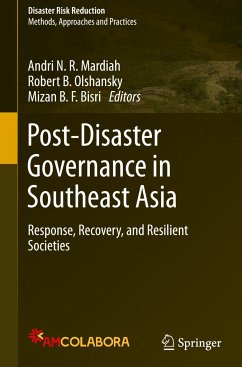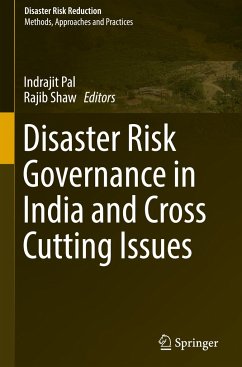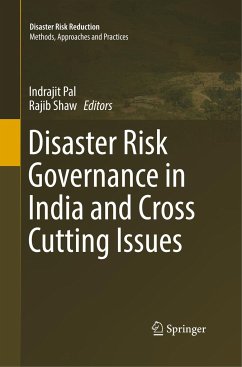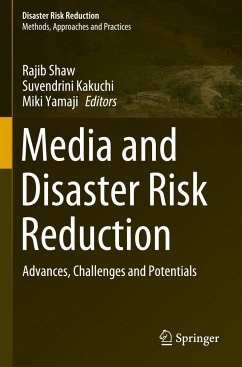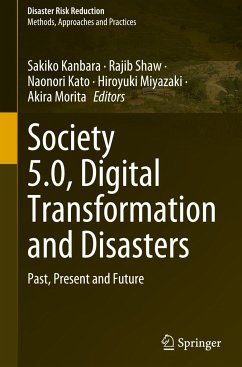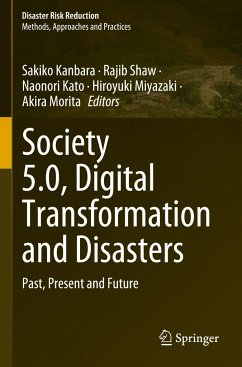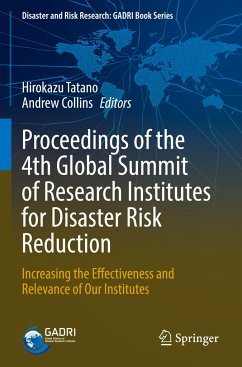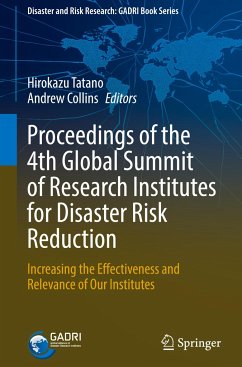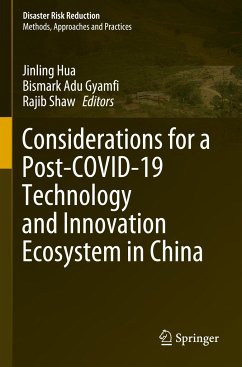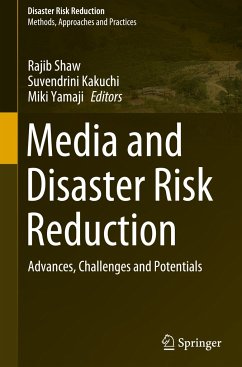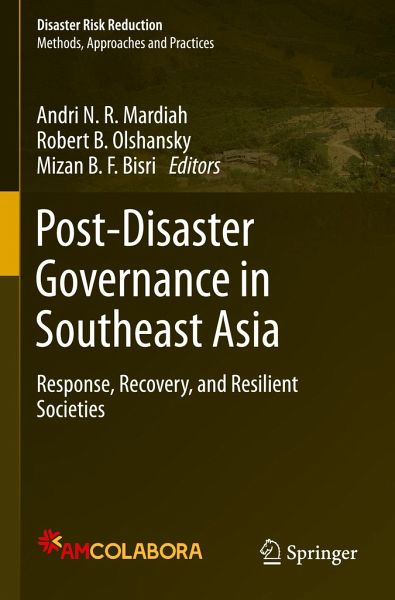
Post-Disaster Governance in Southeast Asia
Response, Recovery, and Resilient Societies
Herausgegeben: Mardiah, Andri N.R.; Olshansky, Robert B.; Bisri, Mizan B.F.
Versandkostenfrei!
Versandfertig in 6-10 Tagen
113,99 €
inkl. MwSt.

PAYBACK Punkte
57 °P sammeln!
This book aims to provide insight into how Southeast Asian countries have responded to disasters, recovered, and rebuilt. It investigates emergency response and disaster recovery cases at national levels and from regional perspectives. Recovery from great disasters poses great challenges to affected countries in terms of organization, financing, and opportunities for post-disaster betterment. Importantly, disasters are critical moments in which to achieve disaster risk reduction, especially in the context of climate change and Sustainable Development Goals. Insights from these cases can help o...
This book aims to provide insight into how Southeast Asian countries have responded to disasters, recovered, and rebuilt. It investigates emergency response and disaster recovery cases at national levels and from regional perspectives. Recovery from great disasters poses great challenges to affected countries in terms of organization, financing, and opportunities for post-disaster betterment. Importantly, disasters are critical moments in which to achieve disaster risk reduction, especially in the context of climate change and Sustainable Development Goals. Insights from these cases can help other countries better prepare for response and recovery before the next disaster strikes. While the experiences of disaster risk reduction and climate change implementation in Southeast Asian countries have been well documented, tacit knowledge from emergency response and recovery from these countries has not been transformed into explicit knowledge. There are only a few books that integrate information and lessons from post-disaster governance in Southeast Asia as a region, and because of the importance of providing real and recent situations, this book will interest many policymakers, practitioners, and academics. The information presented here will lead to a better understanding of how to plan for future disasters and improve governance to ensure effective emergency response as well as encouraging a build back better and safer towards a more resilient and sustained recovery.





